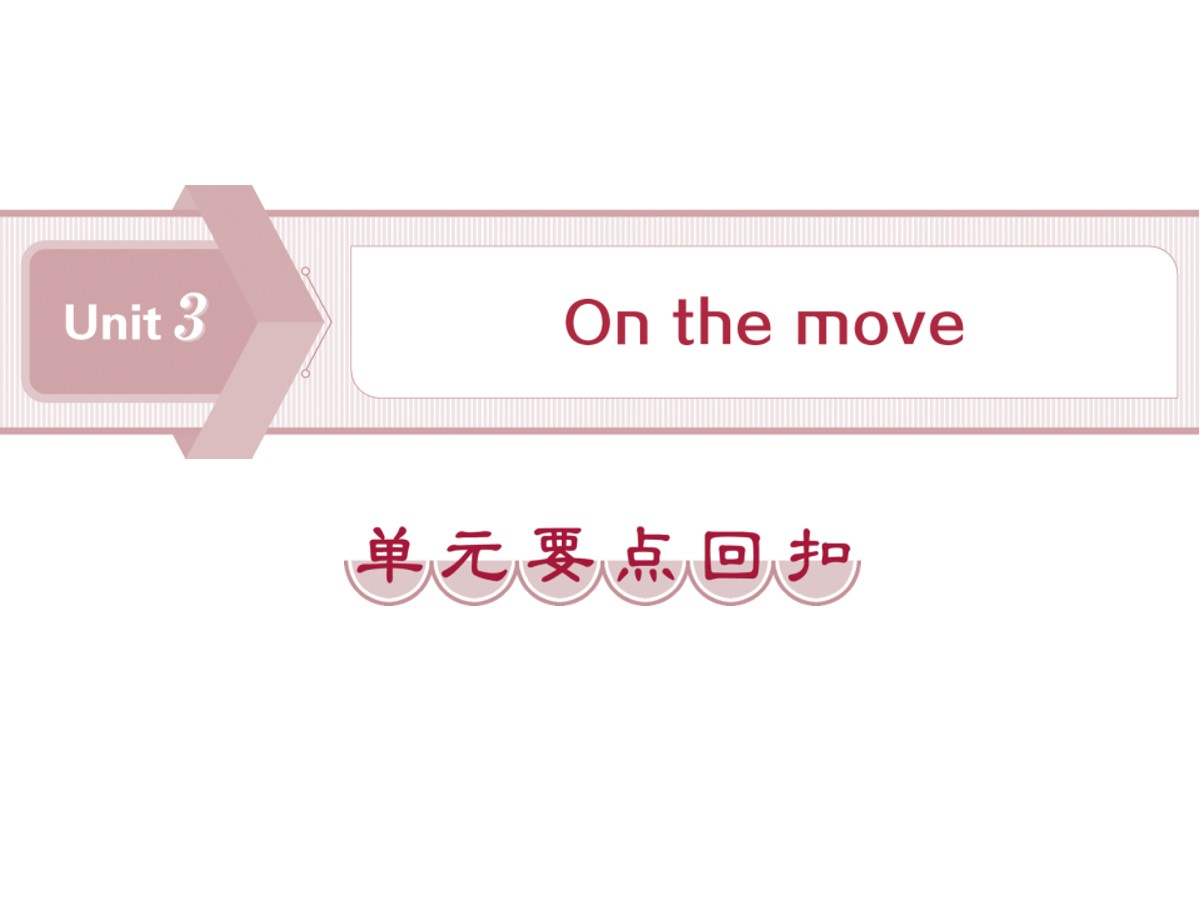《Food for thought》SectionⅠPPT
![]() 0
0
 《Food for thought》SectionⅠPPT
《Food for thought》SectionⅠPPT
《Food for thought》SectionⅠPPT
第一部分内容:教材背景
食物是家的味道,是故乡的颜色, 把故土乡情融入食物中,把家的味道带给世界。
I was born and grew up in Sichuan. Hot pot is an important part of my life. However, when I went to the UK, I found that it was expensive to have hot pot in town (more than 100 yuan per person, without drinks), while the locals know nothing about hot pot. They don’t even know that lotus root(莲藕) is a vegetable.
So I came up with an idea. It was to invite some international friends to a hot pot dinner. The dinner helped me to spread our culture such as the obsession(喜爱) of Sichuan people with spicy(辛辣的) food and Chinese table manners. It also gave me an opportunity to make friends.
I first showed my talent for cooking for my best friend, a German girl. I took my rice cooker, the container(容器) that I used to make hot pot.
My friend took out her gift—a couple of Chinese bowls—and she told me that this would be the first time she had used them. She had different kinds of vinegar but not the Chinese kind. Since we didn’t have any, we replaced(代替) it with another kind. The taste was even better.
Her mom tried a piece of lotus root. I can still remember her face when she put it into her mouth—she was doubtful about it. But it was a wonderful hot pot night.
When you go to a foreign country, a good way to make more friends is to introduce your own culture through something special, like food. This will attract more friends and you will get pleasure from it.
... ... ...
Food for thought PPT,第二部分内容:新知感悟
阅读词汇(在不认识的单词前划√)
□maple n. □pudding n. □snack n.
□cuisine n. □dare modal verb □wedding n.
□butcher n. □toast n. □butter n.
□roast n.& adj. □cheese n. □china n.
1.________ n. 种,类
2.________ adj. 极好的,了不起的
3. ________ v. 聚集
4. ________ n. 咬
5. ________ n. 象征,标志
6. ________ n. 意见,看法
1. ______________ 幸亏,多亏,由于
2. ______________ 喜欢做……
3. ______________ 患……病;受……折磨
4. ______________ 处理
5. ______________ 偶遇
6. ______________ 提醒某人……
7. ______________ 爱上……
8. ______________ 像在家一样(不拘束)
1.现在分词短语作原因状语:____________________ (生长在英国) with a British father and a Chinese mother, I’ve enjoyed food from both countries ever since I was able to hold a knife and fork—and chopsticks!
2.must have done表示对已发生事情的推测,意为“一定……”:He____________________ (当时一定以为) I was joking.
3.否定词与比较级连用,表示最高级含义:
To me, there’s____________________ (没有什么比……好) a crosscultural afternoon tea of English biscuits and a cup of Chinese oolong tea in a fine china cup!
... ... ...
Food for thought PPT,第三部分内容:语篇理解
Ⅰ Read the text and fill in the blanks.
Brief introduction
↓The child, a mixedblood boy, 1.________ the food from both Britain and China.
Chinese food
↓•Mum has 2.________ memories of the food from her home town in Sichuan.
•Dad has come to love hot pot, but 3.________ not try some dishes.
•The child enjoys eating things like pigs’ ears.
Britain food
↓•Dad can cook not only a 4.________“full English breakfast” but also a typical Sunday roast.
•They all love roast beef and vegetables.
A kind of Chinese food
↓The child came across stinky tofu.He thinks maybe he’ll fall in love with it someday.
Opinions about the food from the two countries
↓The child feels at home with food from both his cultures.
Ⅱ Read the text carefully and choose the best answer according to the text.
1.From the second paragraph, we can learn that________.
A.my dad loves all the Chinese dishes after many years of marriage
B.my dad has been used to eating chicken feet
C.Chinese can make dishes using every part of an animal
D.my grandparents felt surprised when they saw my father for the first time
2.When I asked the butcher if they had pigs’ears, the butcher felt________.
A.unbelievable B.indifferent
C.puzzled D.ignorant
3.Which is the thing all my family enjoy?
A.Pigs’ ears.
B.Roast beef and vegetables.
C.Stinky tofu.
D.Blue cheese.
4.What’s the meaning of “one man’s meat is another man’s poison” in the last paragraph?
A.You are not sure to enjoy what others eat.
B.If one man eats others’ meal, he will get poisoned.
C.It’s dangerous for one man to try others’meal.
D.What suits one may not suit another.
... ... ...
Food for thought PPT,第四部分内容:词汇精研
1.thanks to 幸亏;由于;因为
(教材P2)Thanks to this, Dad has come to love hot pot!
多亏了这个,爸爸才渐渐喜欢上了火锅!
because of 因为;由于
as a result of 作为……的结果;由于
①Thanks to their selfless support, we have made such achievements.
多亏了他们无私的支持,我们才取得了这样的成就。
②_____ a result of global warming,the number of many animals is decreasing.
由于全球变暖,许多动物的数量在减少。
③The sports meet was put off because _____ the bad weather.
由于天气不好,运动会延期了。
2. take to(尤指短时间内)喜欢上;养成(做)……的习惯
(教材P3)Even today, he still does not easily take to eating things like chicken feet.
即使到了今天,他仍然不容易接受吃鸡爪之类的东西。
take up 占去,占据(时间、空间等)
take in 吸收;理解;欺骗
take on 呈现;雇用
take over 接管,接任
take down 记下;写下
①He has recently taken to staying in bed of a Sunday morning.
他最近养成了星期日早上不起床的习惯。
②I’m sorry to have taken _____ so much of your time.
对不起,我占用了你这么多时间。
③It is certain that when Mr.Green retires, his son will take _____ the business from him.
可以确信的是,格林先生退休后,他的儿子将接管他的生意。
④I couldn’t take _____ the professor’s lecture at all.It was too difficult for me.
我根本理解不了这位教授讲的课。它对我来说太难了。
... ... ...
Food for thought PPT,第五部分内容:句型精析
否定词与比较级连用,表示最高级含义
(教材P3)To me, there’s nothing better than a crosscultural afternoon tea of English biscuits and a cup of Chinese oolong tea in a fine china cup!
对我来说,没有什么比一杯跨文化的英式饼干下午茶和一瓷杯乌龙茶更好的了!
本句中否定词nothing与比较级better连用,表示最高级含义。表示最高级含义的几种特殊结构:
(1)否定词+比较级,“没有比……更……;没有像……一样……”,常用的否定词有no, not, never, nothing, nobody, hardly等。
(2)can/could+never/not...enough/too...再……也不过分。
①—What do you think of the 2019 military parade of National Day?
——你觉得2019年国庆阅兵式怎么样?
—It couldn’t be better.
——再好不过了。
②I have never seen a_________ (good) film before.
我以前从未看过比这更好的电影。
③You can’t be_________ careful while driving a car, for accidents happen frequently.
你驾车时再小心也不过分,因为交通事故经常发生。
... ... ..
《Food for thought》PartⅤ PPT 第一部分内容:写作指导 食品介绍类文章属于说明文,要求语言准确,按照被说明事物的实际情况,运用最确切的词句,恰如其分地进行介绍。要使读者容易..
《Food for thought》PartⅣ PPT 第一部分内容:命题专家说题型 在高考听力理解测试中,数字与计算属于十分常见的题型,话题大多涉及以下几个方面: (1)基数词、序数词、分数、百分数..
《Food for thought》PartⅢ PPT 第一部分内容:教材原文呈现 Healthy You! Is there any truth behind the saying You are (1) what you eat?We put this to the test (2) by askin..
















 关于我们
关于我们 备案号:冀ICP备18037400号-20
备案号:冀ICP备18037400号-20